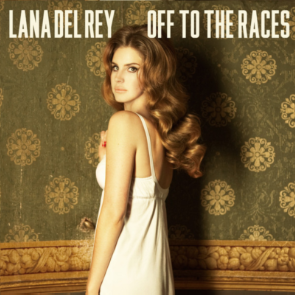Off to The Races

The false sense of sexual bravado in Part One of Lolita appeals instantly to me. This is central to Humbert’s supposed expertise in nympholepsy. Constantly, he attempts to convince the supposed frigid, all-female jury that he is at all times vulnerable, intelligent, deliberate and spontaneous with his monstrous passion. Humbert attempts to convince himself of his physical and intellectual qualifications, as if that grants him an air of certainty in adjudicating molestation. Each deliberate act of incest, however, is underscored by a resounding fear that makes him appear unable to shake his demons. Humbert is still, in some ways, the young man who failed to consummate his pubescent sexual trysts. But which Humbert are we supposed to buy?
Both. They are one in the same, as Lolita is sexually debauched yet reticent from Romance. They place each other in the realm of “lovers”, yet refer constantly in body and word to their counterpart’s sexual objectivity. Lolita, for example, deliberately spurns Humbert’s relatively sensual advances (kisses, nuzzling, sweet talk) as if to demonstrate her expertise, her pride in sexual matters. But as we are left between Parts One and Two, Lolita is left to the discretion of a middle-aged man. And as she creeps into his bedroom in the middle of the night sobbing, on some level she too is aware of her fears.
It’s interesting to see how such inauthenticity orchestrates the sexualized chess game between the two. All the while, Humbert suggests we excuse them of modern standards. He begs for a cultural relativism that sees his behavior and inclination to nymphets in a favorable light. He elaborates on his resounding reluctance, his seeming inability to shake his passion, his incapacity. He insists on maintaining Lolita’s purity until she discards it that “fateful” August morning in 1947. He attempts every deviant’s argument to intimate his liberation from modern scrutiny and reassessment.
Yet all of Humbert’s explanation, pathological lying and meticulous planning demonstrates that he abides by the sexual custom of his time. He is fully cognizant and aware of the depravity of his acts. Furthermore, Humbert’s attempt to document the special, liberating quality of the “love” he shares with Lolita reveals that he is ultimately haunted by the dregs of his sexuality.
Banal Pop-Culture Reference Alert: I wanted to include a track from Lana Del Rey’s modern-day chanteuse homage to Lola Haze. “Off to the Races” embodies several elements of Nabokov’s novel, including Lolita’s alarming conflation of father with lover. Lana sings “My Old Man is a bad man…” at the outset to recall the scene in the car where Lolita tests the name “Dad” out on poor Hummy. What can we take from this confusion? I’d like to argue that Lolita is as afraid as Humbert is, and Humbert is scared shitless. This cannot end well.
Lana Del Rey – “Off to The Races” from Born to Die
Tags: inauthenticity, Lana Del Rey, Lolita
